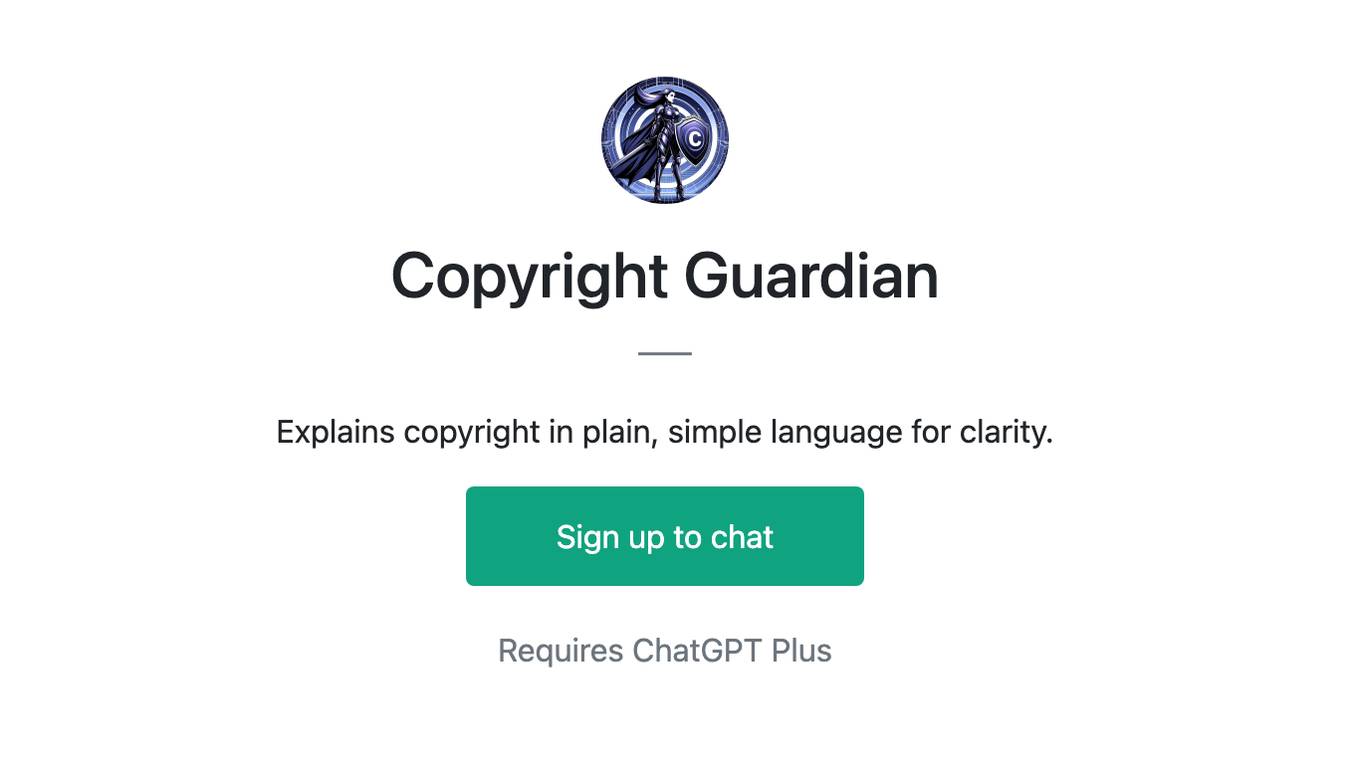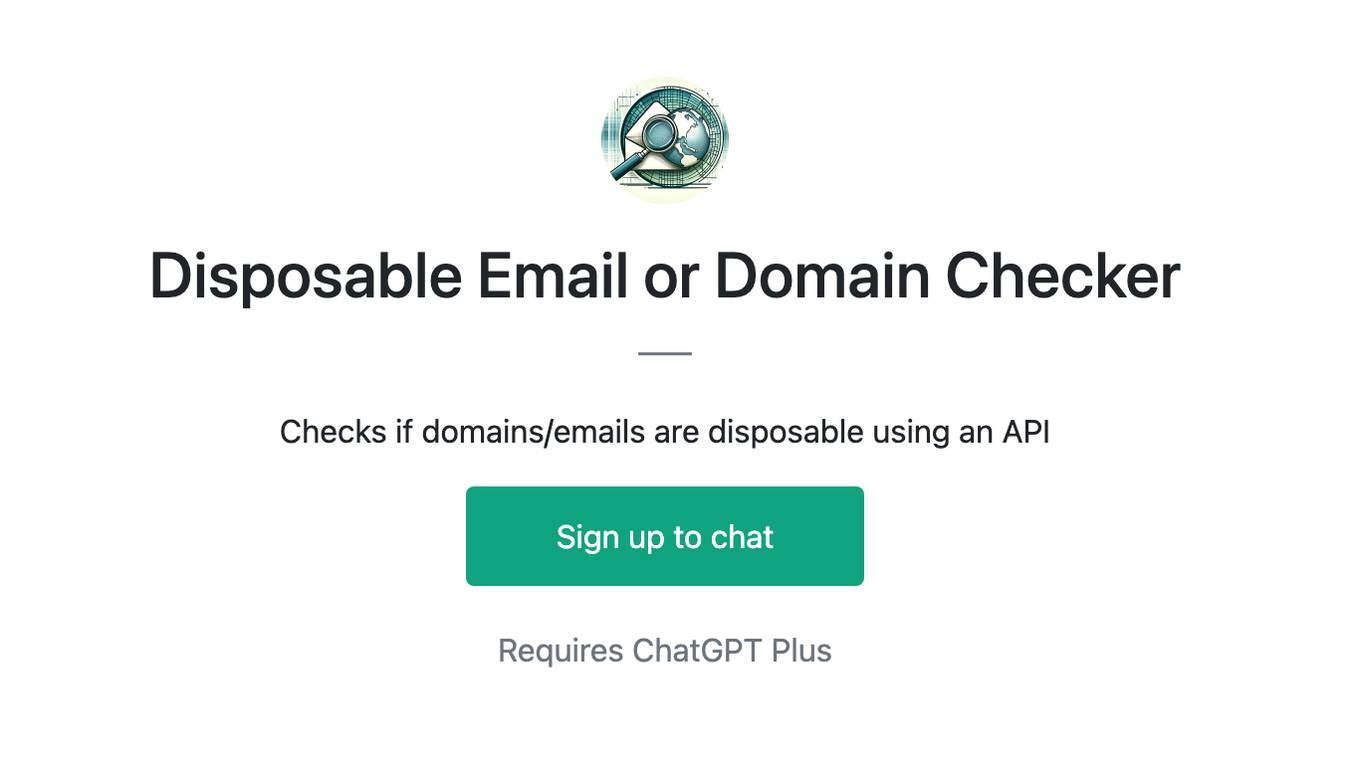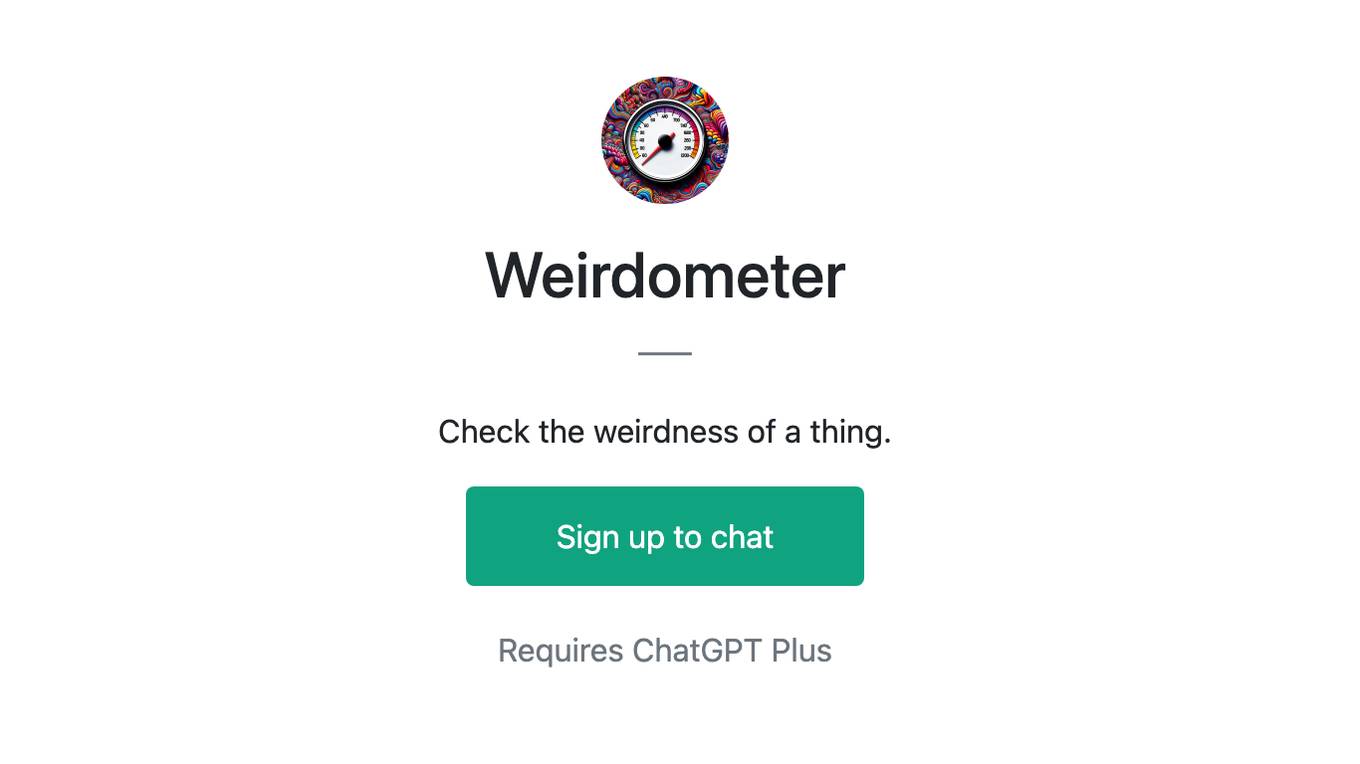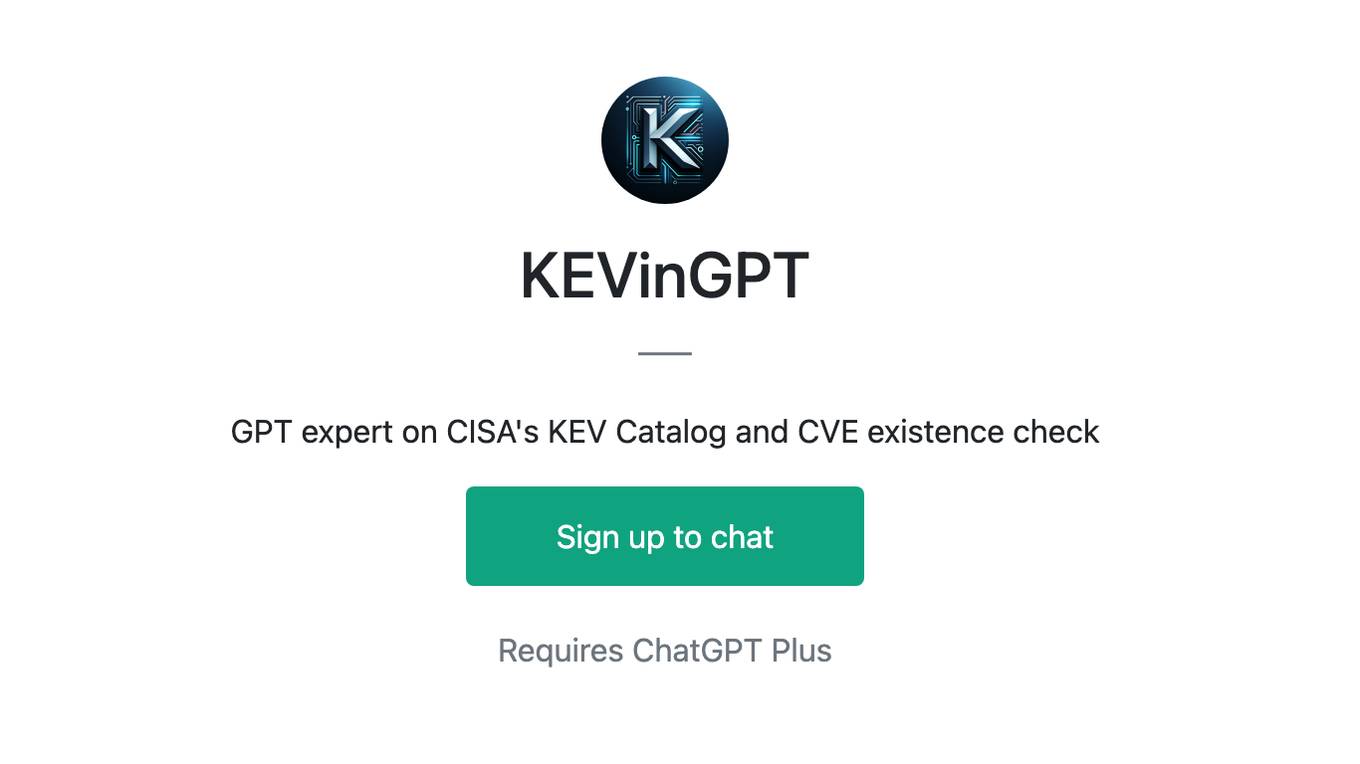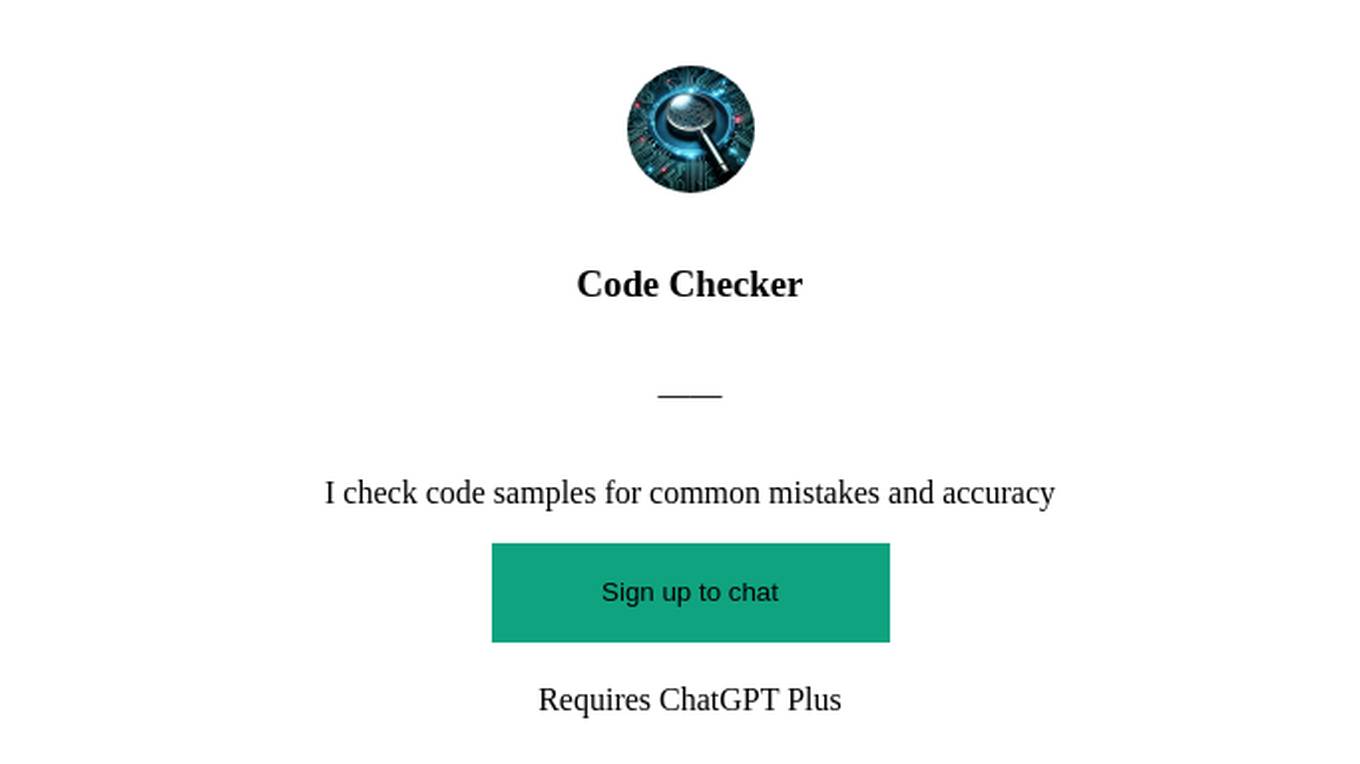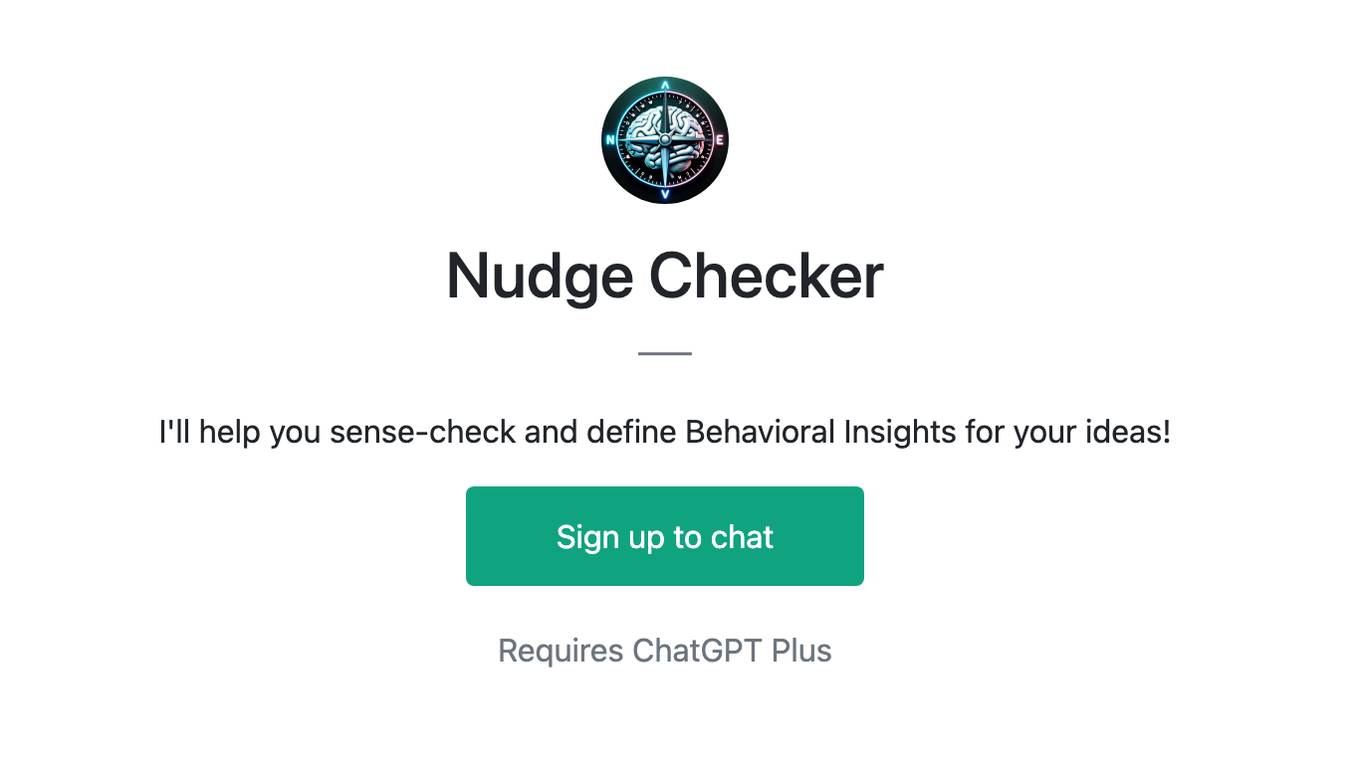Best AI tools for< Check Domain Ownership >
20 - AI tool Sites

Hify.io
Hify.io is a domain selling platform that offers users the opportunity to purchase premium verified domains. The platform provides a secure and hassle-free experience for buying or leasing domain names. With fast and easy transfers, local currency options, and transaction support, Hify.io ensures a smooth process for acquiring the desired domain. The website emphasizes simplicity and safety in domain transactions, making it a reliable choice for individuals or businesses looking to own a domain.

Boostio.ai
Boostio.ai is a website offering a platform for purchasing and transferring domain names. It provides a simple and secure process for customers to buy domains, with dedicated 24/7 support. Boostio.ai is trusted by customers globally and ensures a smooth purchase and transfer experience. The platform is owned by GoDaddy Operating Company, LLC, a reputable company in the domain industry.
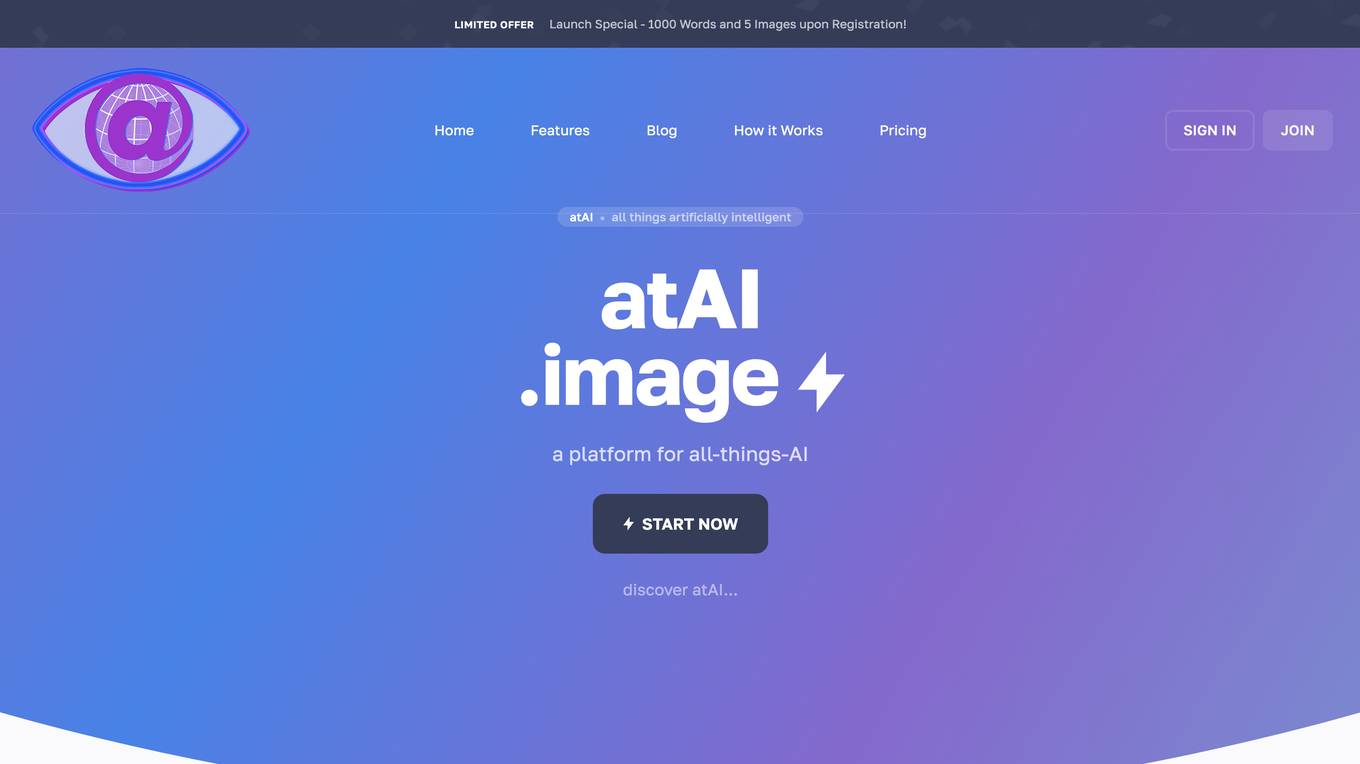
Atai.world
Atai.world is a website domain that appears to be registered but available for purchase. The site does not provide any specific information or functionality, and it seems to be related to privacy settings and technical support. The website is available in English language.
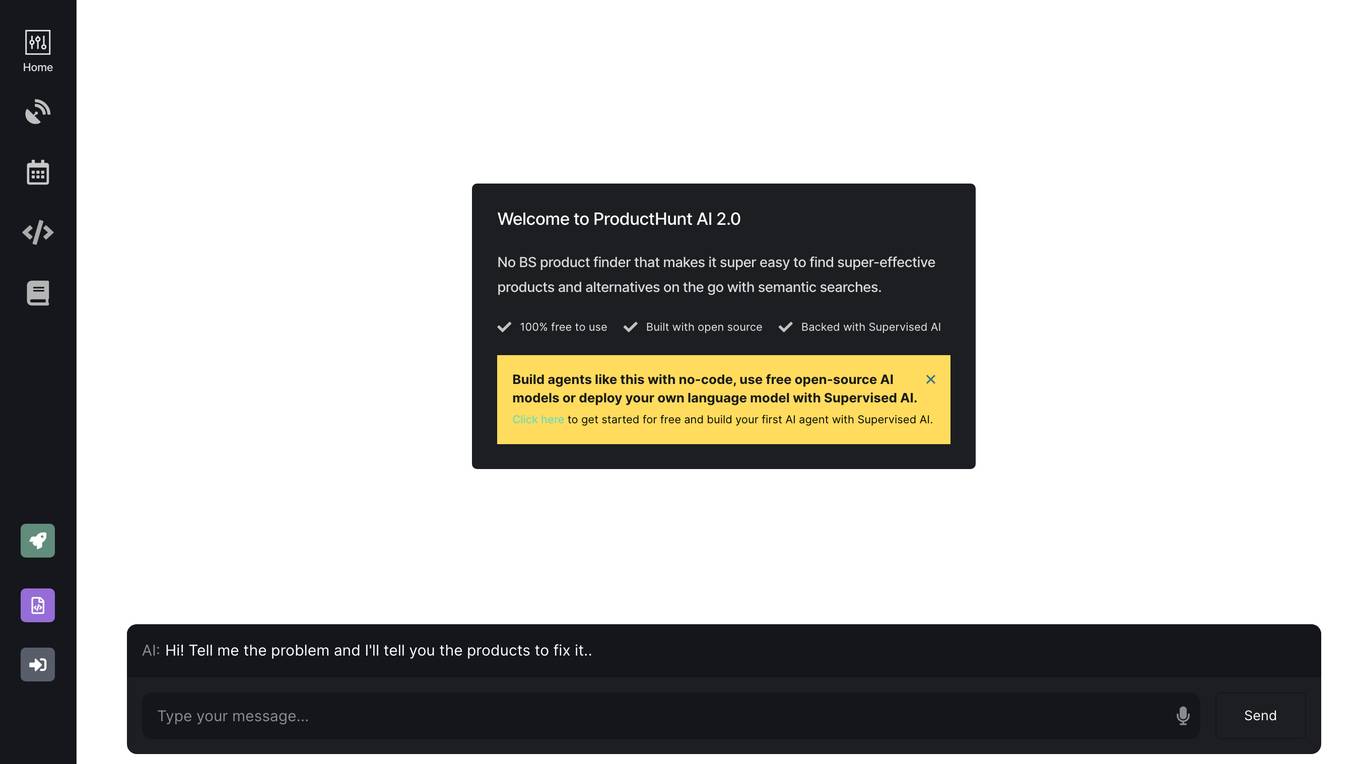
Sttabot.io
Sttabot.io is a website domain that appears to be up for sale. The site does not provide any specific information or content, and it seems to be a placeholder or under development. Visitors are prompted to inquire about purchasing the domain or contact a specified phone number for more details. The website emphasizes copyright and privacy policy, suggesting a focus on legal aspects of domain ownership.

useproxy.com
useproxy.com is a website offering domain names for sale. The site provides a platform for users to purchase domain names, with the current domain useproxy.com available for $4,795. The website ensures safe and secure transactions, fast and easy transfers, and hassle-free payments. With a Trustpilot rating of 4.6 out of 5, useproxy.com aims to provide a reliable service for individuals or businesses looking to acquire domain names.
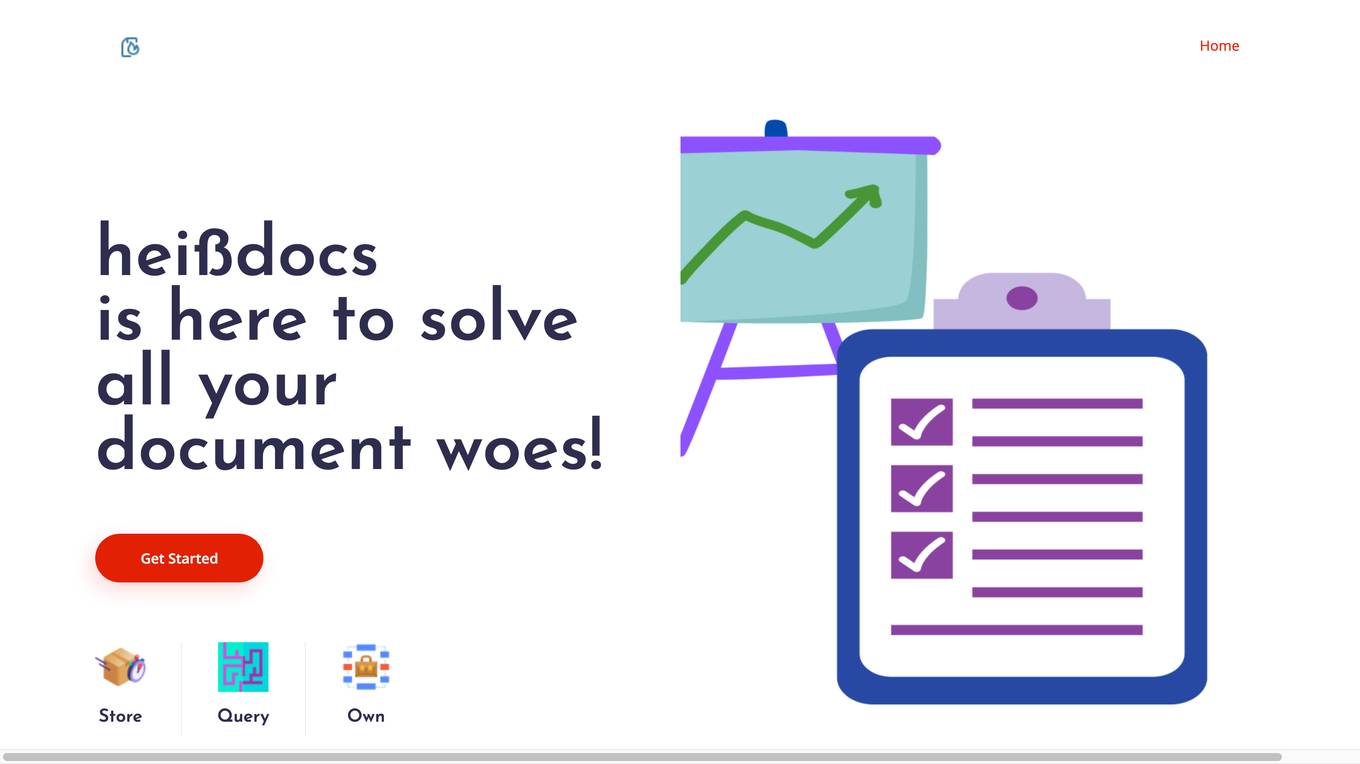
Heissdocs
Heissdocs.com is a domain selling platform that offers a secure and hassle-free process for buying and transferring domain names. The platform ensures buyer protection through a unique program, fast and easy transfers, and secure payment options. It provides information on Value Added Tax (VAT) for EU consumers and businesses. With a focus on simplicity and safety, Heissdocs.com aims to make domain name transactions straightforward and secure for users.
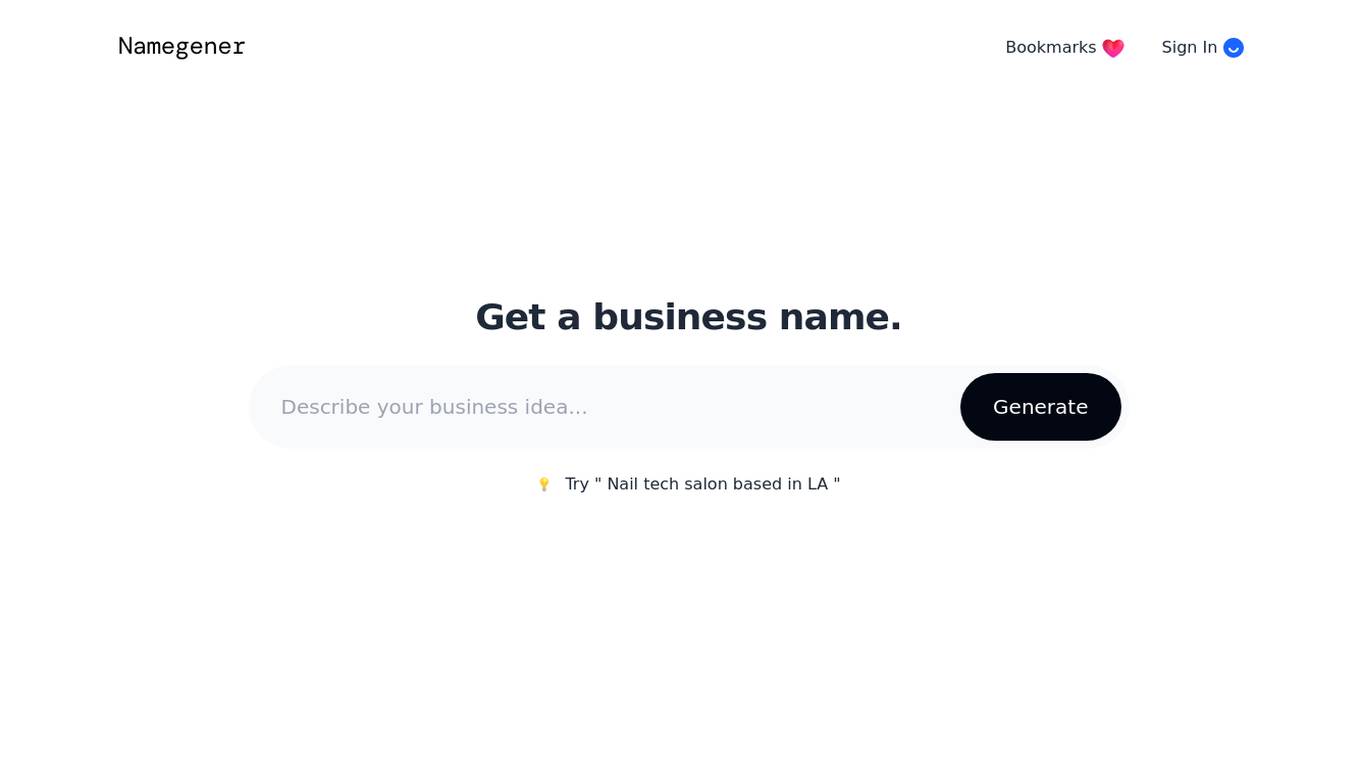
Namegener
Namegener is an AI business name generator tool that helps users find the perfect brand name for their business. It utilizes artificial intelligence algorithms to generate unique and creative business names based on user input. Users can input specific keywords or descriptions related to their business to receive a list of suggested names. Namegener simplifies the process of naming a business by providing a wide range of naming options to choose from, saving time and effort for entrepreneurs and startups.

Ponzu.gg
Ponzu.gg is a domain name that may be for sale. The website provides information about the domain and offers the option to inquire about purchasing it. It is a platform where users can explore the availability of the domain name and potentially acquire it for their own use. The site emphasizes copyright and privacy policy to protect intellectual property rights and user data.
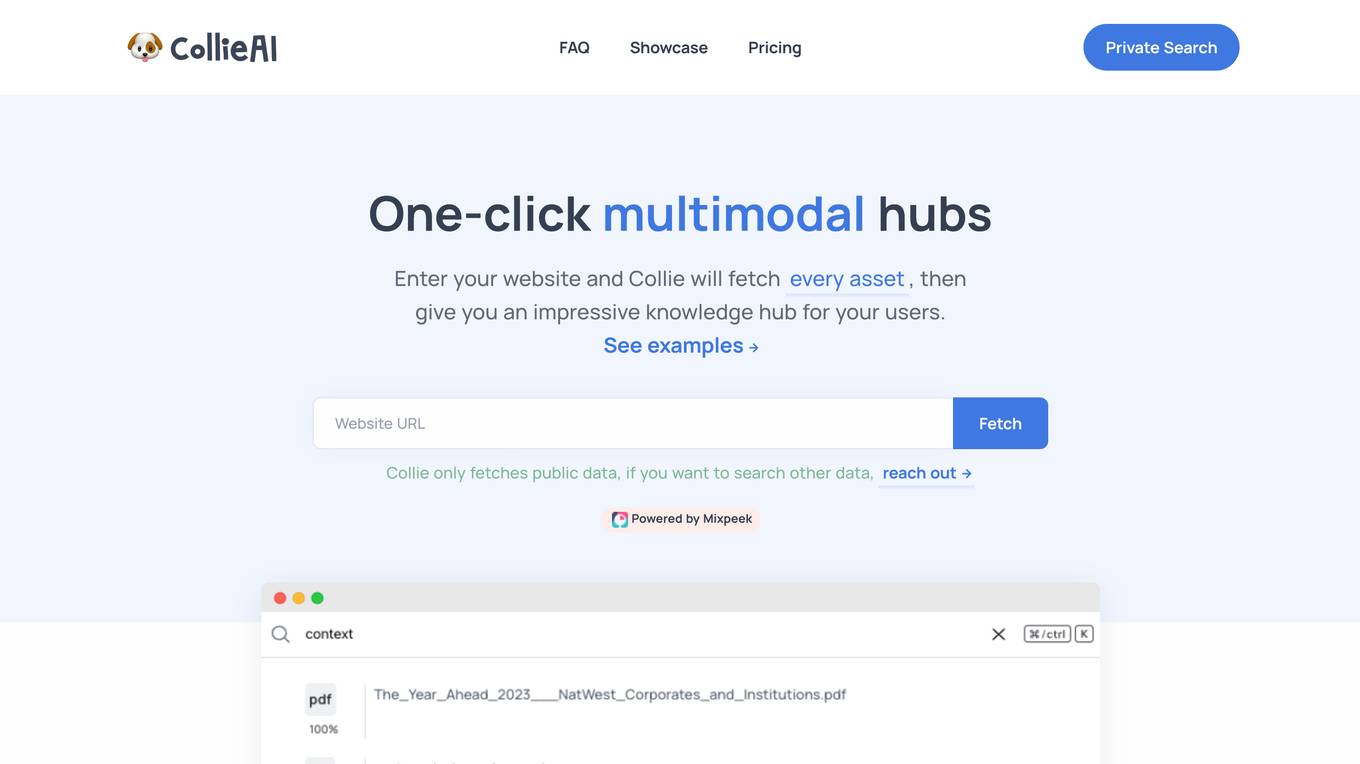
Collie.ai
Collie.ai is a website domain registration service that allows users to check the availability of domain names. The platform provides a user-friendly interface for individuals and businesses to search for and potentially acquire domain names for their websites. With a rating of 4.6 out of 5 on Trustpilot, Collie.ai is known for its excellent service and ease of use. Users can quickly determine if a desired domain name is already registered or if it is still available for purchase. The platform also offers privacy settings to ensure the protection of personal information.
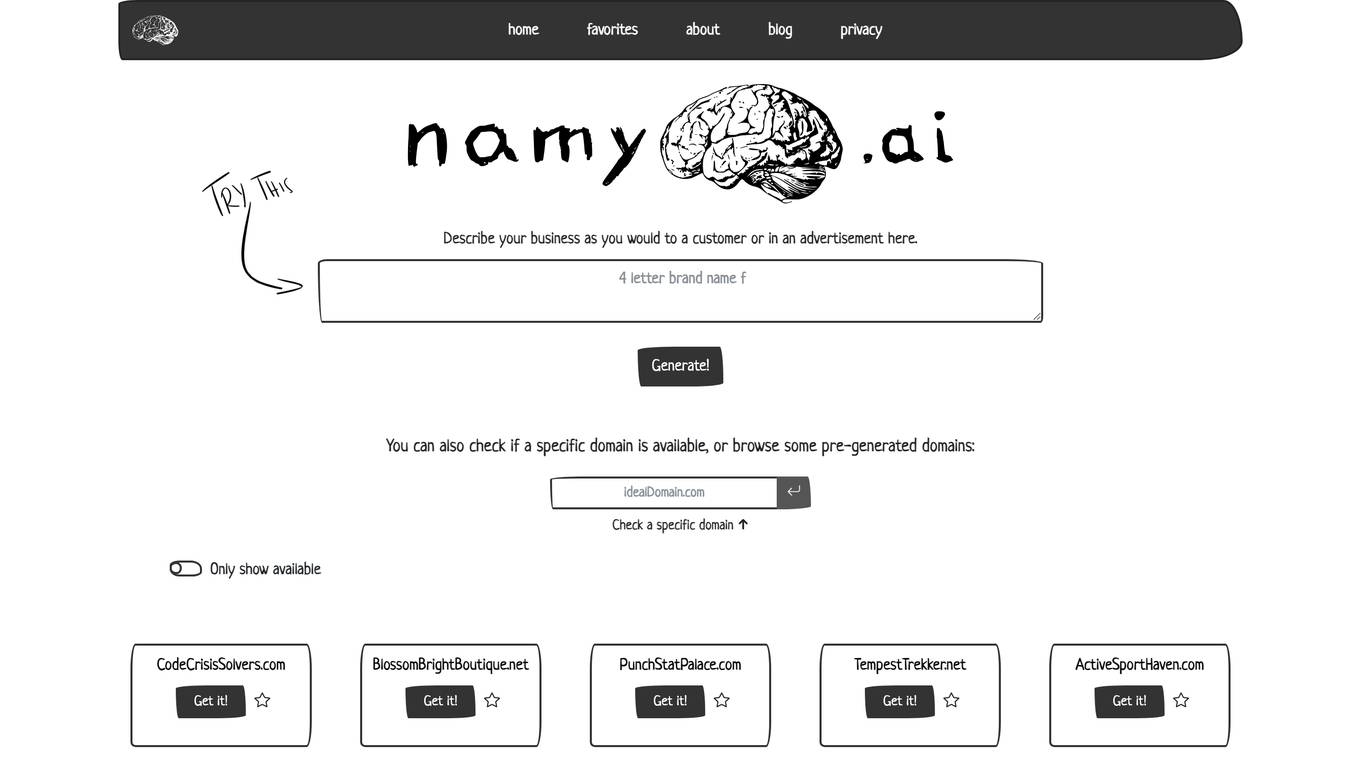
Namy.ai
Namy.ai is a domain generator that uses AI technology to help users quickly create website domain names. Users can describe their business or idea, and the tool generates domain suggestions in just 30 seconds. The tool also allows users to check domain availability and browse pre-generated domain options. With Namy.ai, users can easily find the perfect domain name for their business or project.

needsmoreboom.com
needsmoreboom.com is a website that provides domain registration services. The site allows users to check the availability of domain names and potentially acquire them. It offers a simple and user-friendly interface for individuals or businesses looking to secure a domain for their online presence. The platform aims to streamline the process of finding and obtaining a suitable domain name, catering to various needs and preferences.

Compliance.sh
Compliance.sh is a website that provides domain registration services. The platform allows users to check the availability of domain names and potentially acquire them. With a user-friendly interface, Compliance.sh simplifies the process of securing a domain name for personal or business use. The platform also emphasizes privacy settings and data protection, ensuring that users can manage their personal information securely.

Namewizard
Namewizard is an AI-powered domain name generator that helps you find the perfect domain name for your business or project. With Namewizard, you can generate unlimited domain name suggestions, check domain availability, and use advanced search filters to narrow down your results. Namewizard also offers a history of your domain name suggestions so you can easily track your progress. Namewizard is the perfect tool for anyone who is looking for a creative and unique domain name.
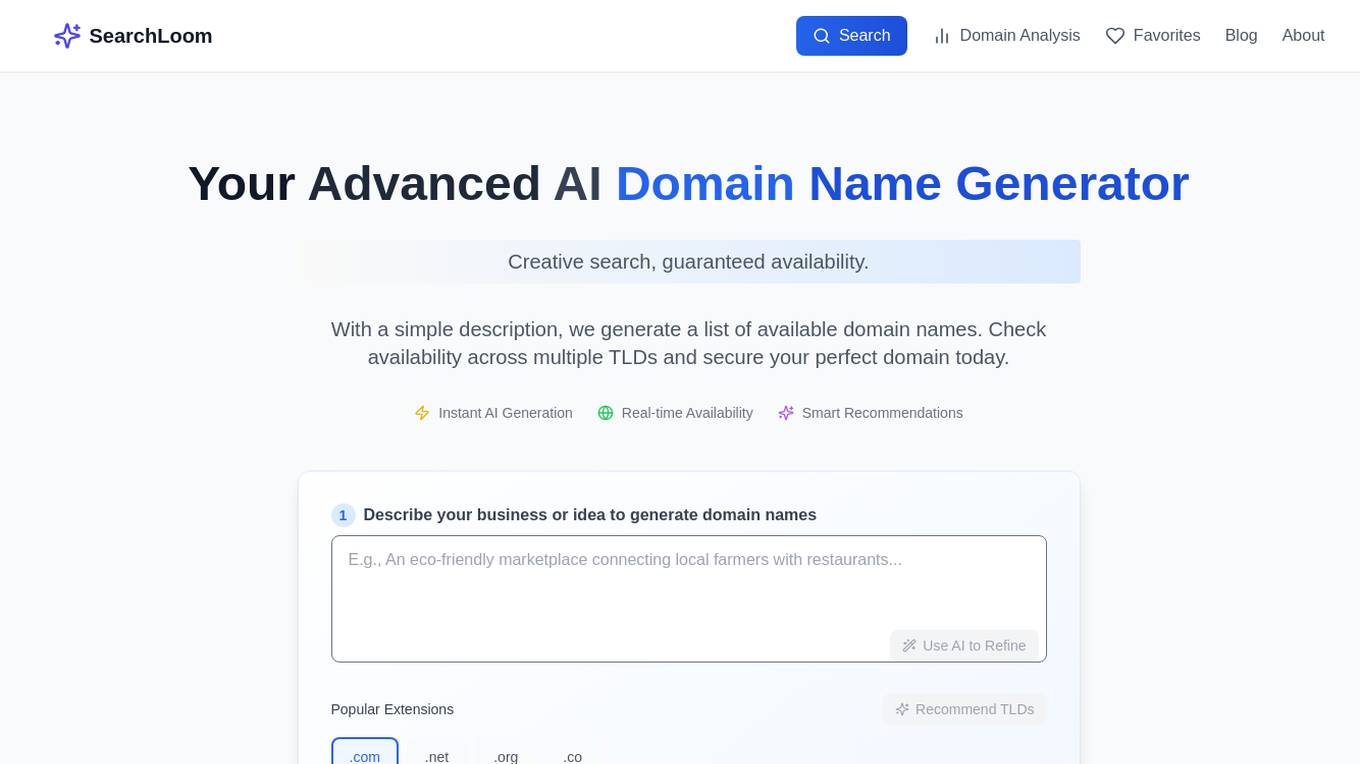
SearchLoom
SearchLoom is an AI-powered domain name generator that revolutionizes the process of finding the perfect domain name for your business or idea. By harnessing the power of artificial intelligence, SearchLoom generates creative and context-aware domain suggestions that align with your brand's identity and goals. The advanced AI technology analyzes your business description and industry context to provide intelligent domain recommendations across multiple TLDs, ensuring availability and relevance. With features like real-time availability checks, smart recommendations, and instant AI generation, SearchLoom offers a seamless and efficient domain search experience for modern businesses.

Promotee.co
Promotee.co is a website that is currently for sale. It serves as a platform for the sale of the domain promotee.co. The webpage was created using Sedo Domain Parking. Please note that Sedo, the domain parking service, does not have any direct relationship with third-party advertisers. Any references to specific services or trademarks are not endorsed or controlled by Sedo. The website provides information about the domain and its potential sale.

Posturenet.app
Posturenet.app is a domain selling platform that offers a simple and secure way to buy or lease domain names. The platform provides a user-friendly experience for individuals looking to acquire a domain for personal or business use. With features like premium verified domains, lease-to-own options, and secure payment methods, Posturenet.app aims to streamline the domain acquisition process. The platform ensures fast and easy transfers, hassle-free payments, and local currency support for a seamless transaction experience.

aicardgenerator.com
aicardgenerator.com is a website offering domain names for sale, with a focus on providing a simple and secure platform for users to purchase or lease domains. The site ensures hassle-free transactions, fast transfers, and secure payments, making it easy for individuals to acquire the domain they desire. With a user-friendly interface and support for local currencies, aicardgenerator.com aims to streamline the process of domain acquisition for customers worldwide.

Validly.app
Validly.app is a website that offers domain registration services. Users can purchase registered domains through this platform. The website provides a user-friendly interface for customers to search for and acquire domain names. It also ensures privacy and security by allowing users to manage their personal information and privacy settings. With a high Trustpilot rating of 4.6 out of 5, Validly.app is a reliable platform for domain registration.

Contentcale
Contentcale.com is a domain currently up for sale. The website serves as a platform for selling the domain and provides information about the domain. It is generated by Sedo Domain Parking, and the site disclaims any relationship with third-party advertisers. The contentcale.com domain may be purchased by interested parties.
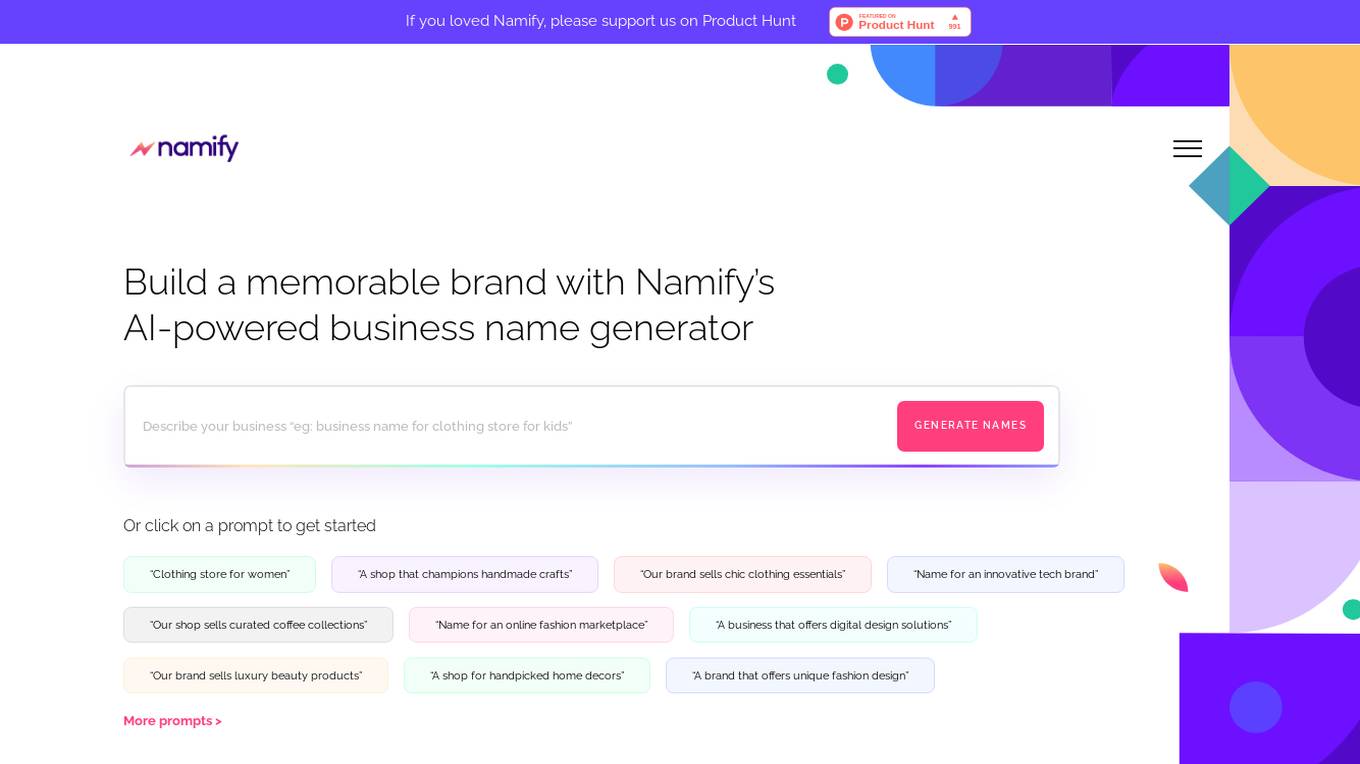
Namify
Namify is an AI-powered business name generator that helps users create a memorable brand name effortlessly. It leverages the power of new domain extensions to curate meaningful domain name suggestions for various businesses. Namify also provides logo design options and checks domain name, social media username, and trademark availability to ensure a solid branding decision. With expert recommendations and a user-friendly interface, Namify streamlines the process of finding the perfect brand name for your business.
0 - Open Source AI Tools
20 - OpenAI Gpts
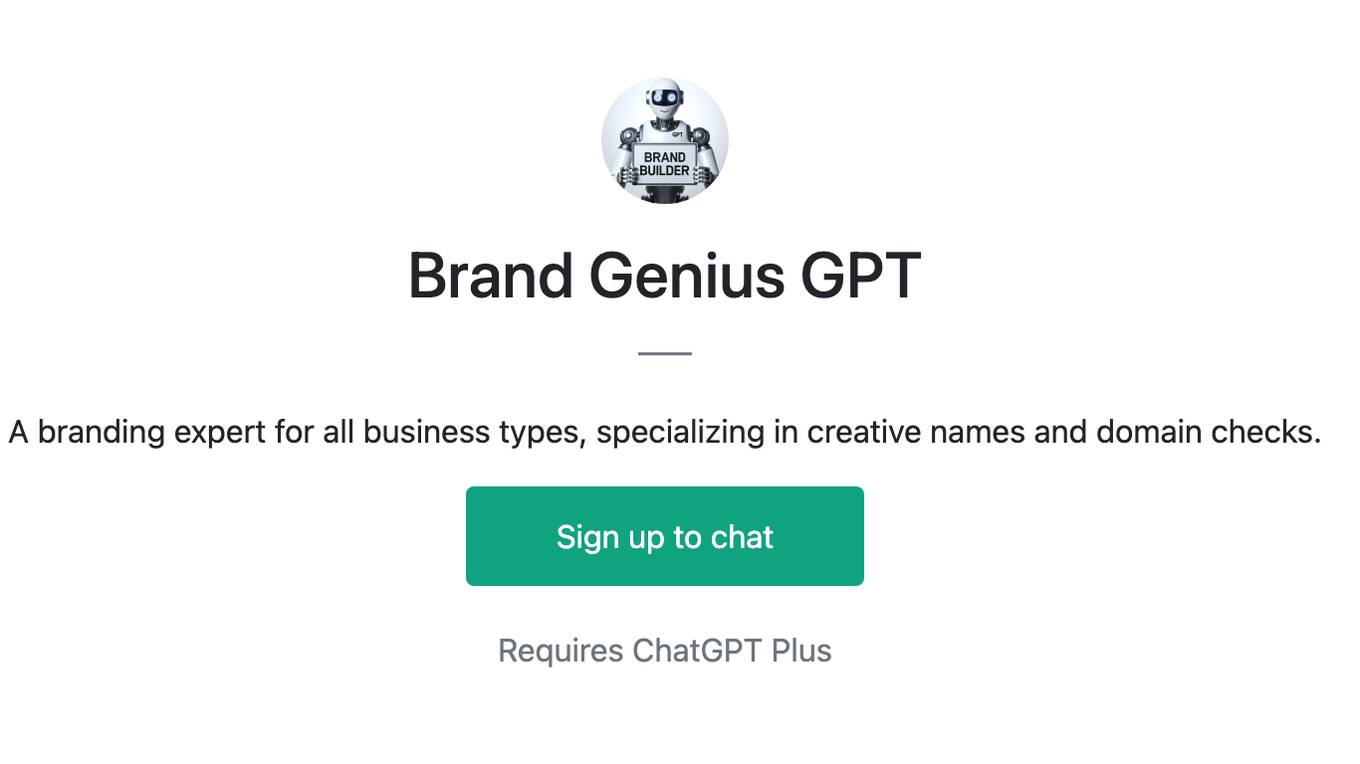
Brand Genius GPT
A branding expert for all business types, specializing in creative names and domain checks.
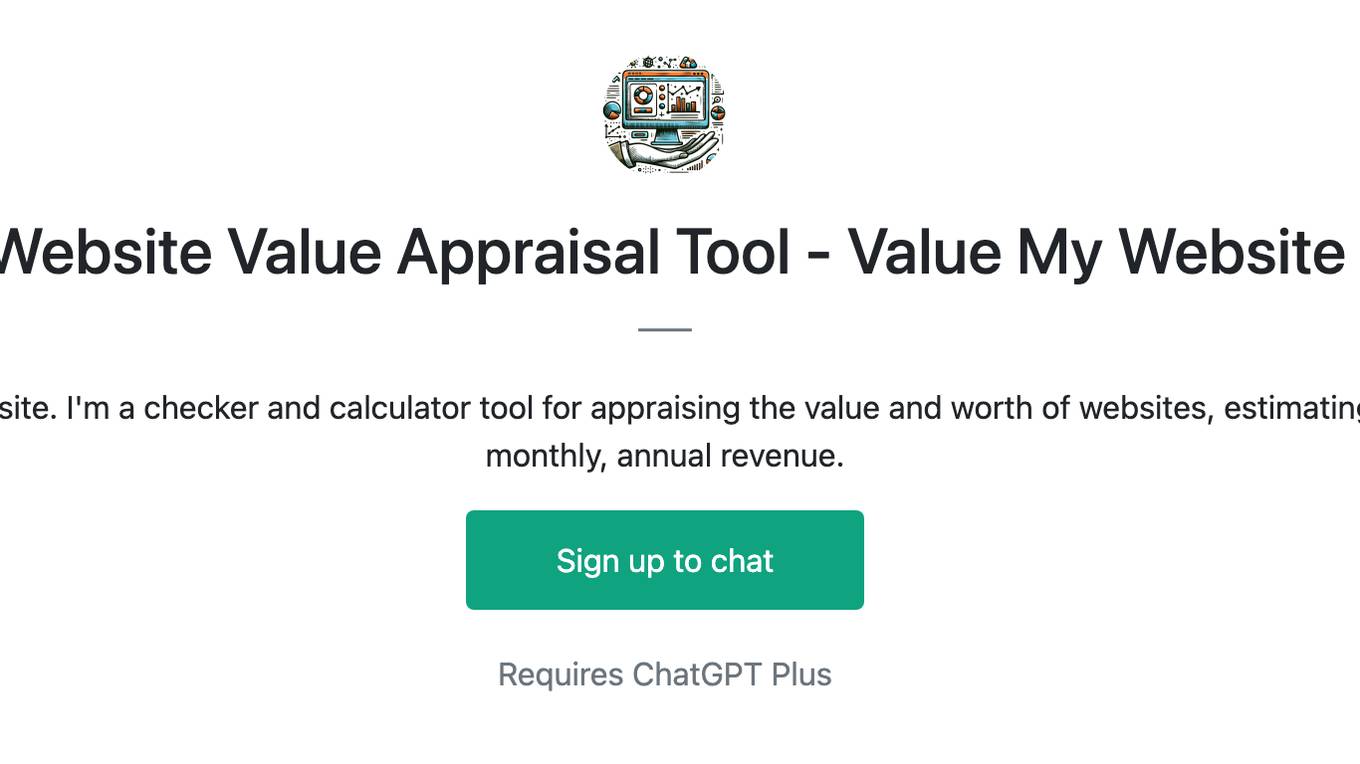
Website Value Appraisal Tool - Value My Website
Website Value Appraisal Tool - Value My Website. I'm a checker and calculator tool for appraising the value and worth of websites, estimating prices based on domain & website's daily, monthly, annual revenue.
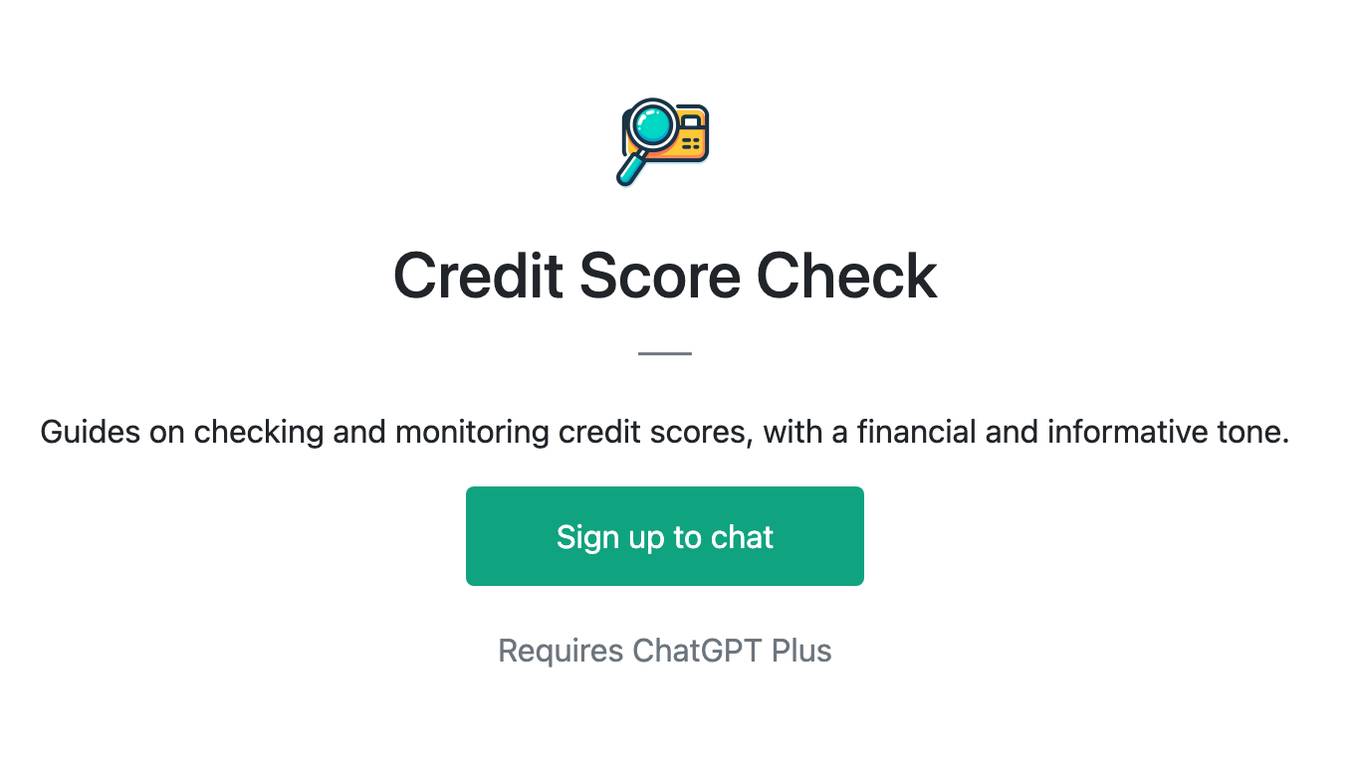
Credit Score Check
Guides on checking and monitoring credit scores, with a financial and informative tone.
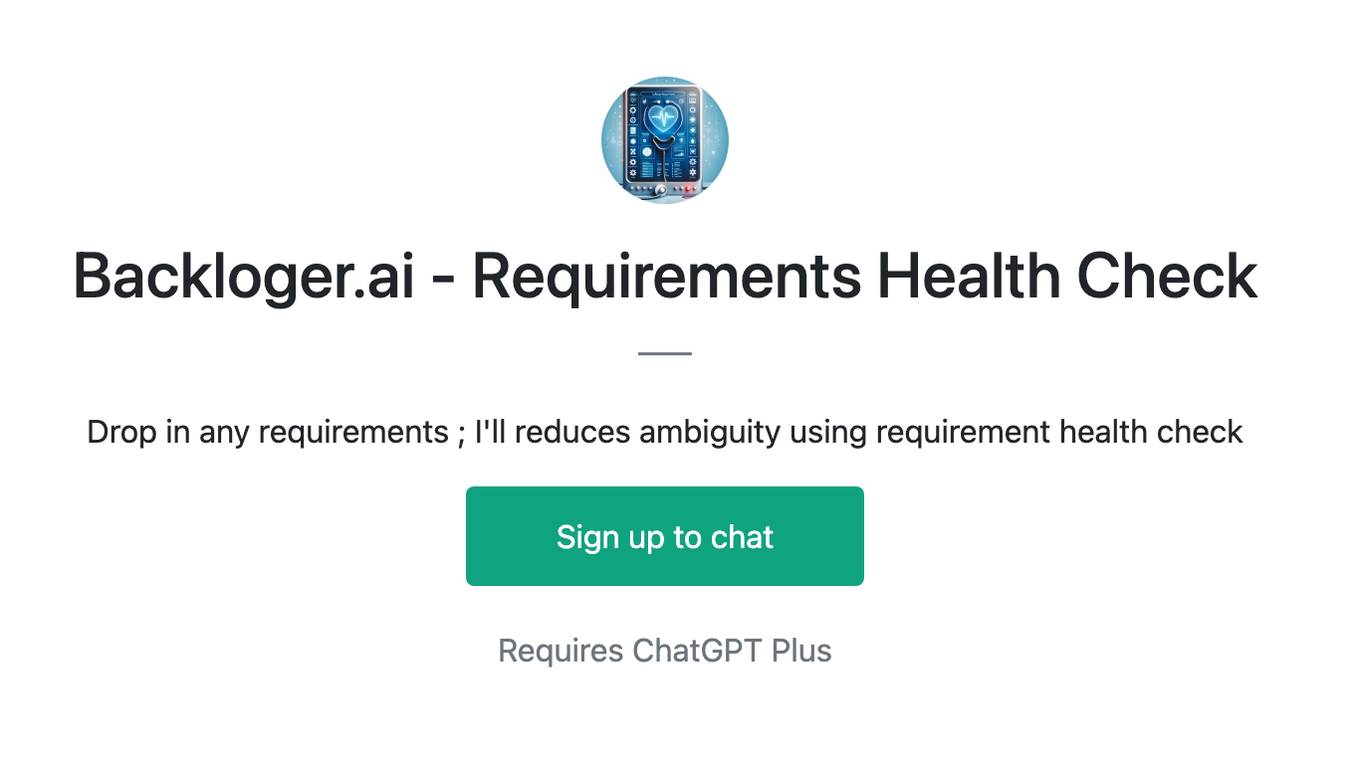
Backloger.ai - Requirements Health Check
Drop in any requirements ; I'll reduces ambiguity using requirement health check
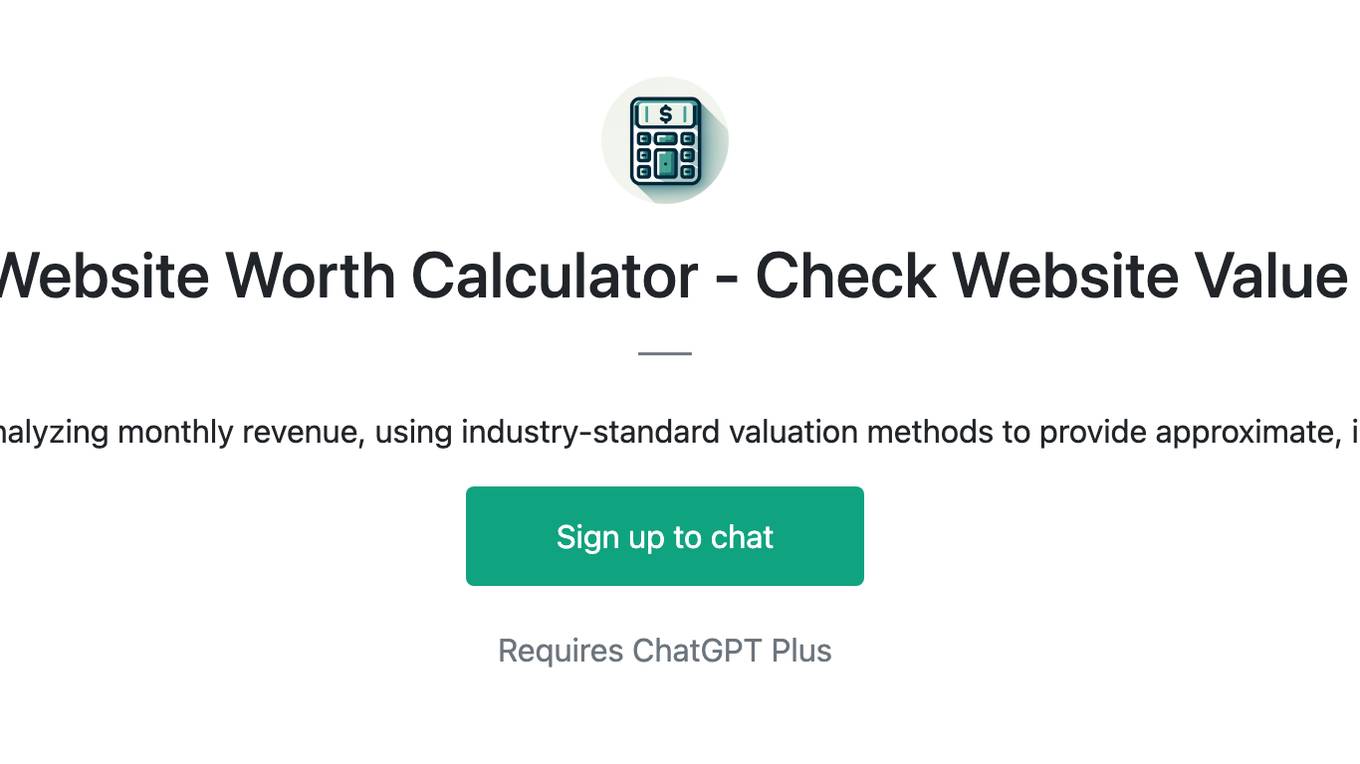
Website Worth Calculator - Check Website Value
Calculate website worth by analyzing monthly revenue, using industry-standard valuation methods to provide approximate, informative value estimates.
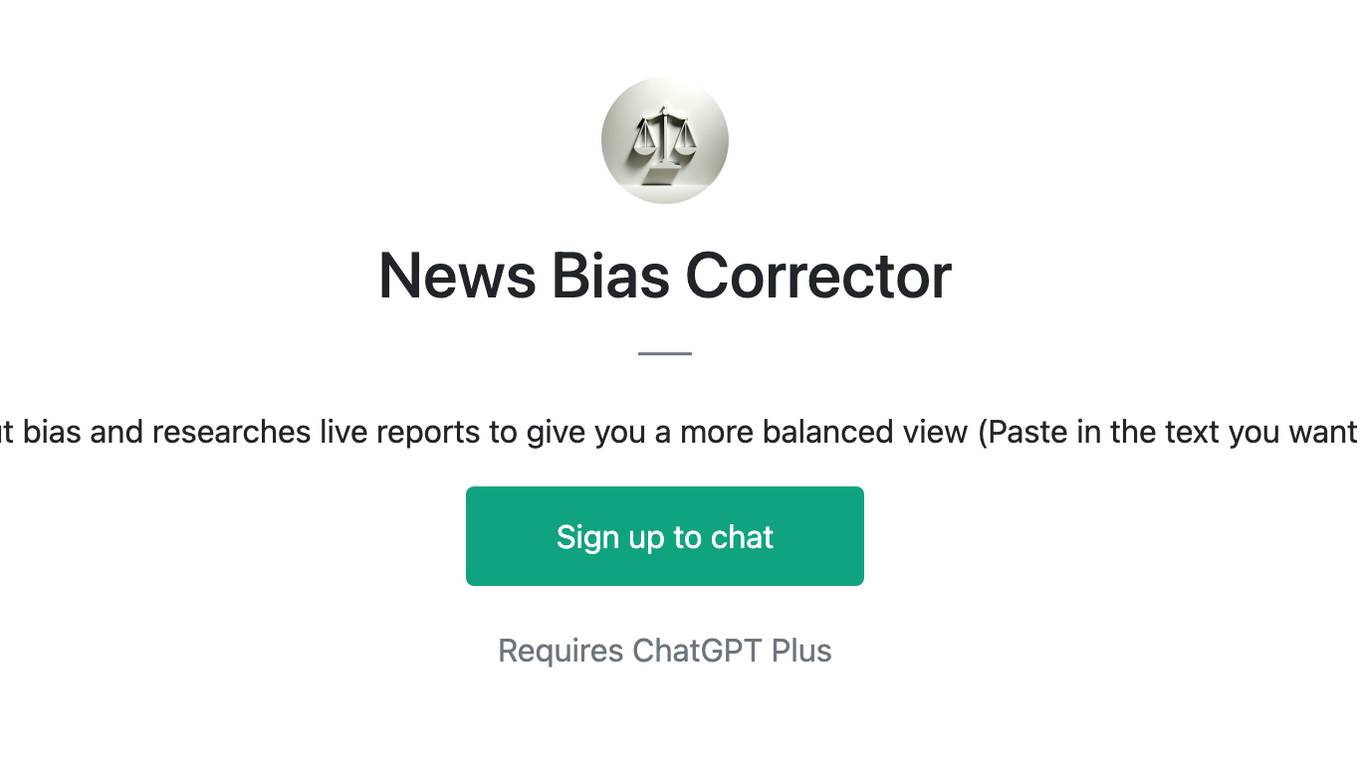
News Bias Corrector
Balances out bias and researches live reports to give you a more balanced view (Paste in the text you want to check)
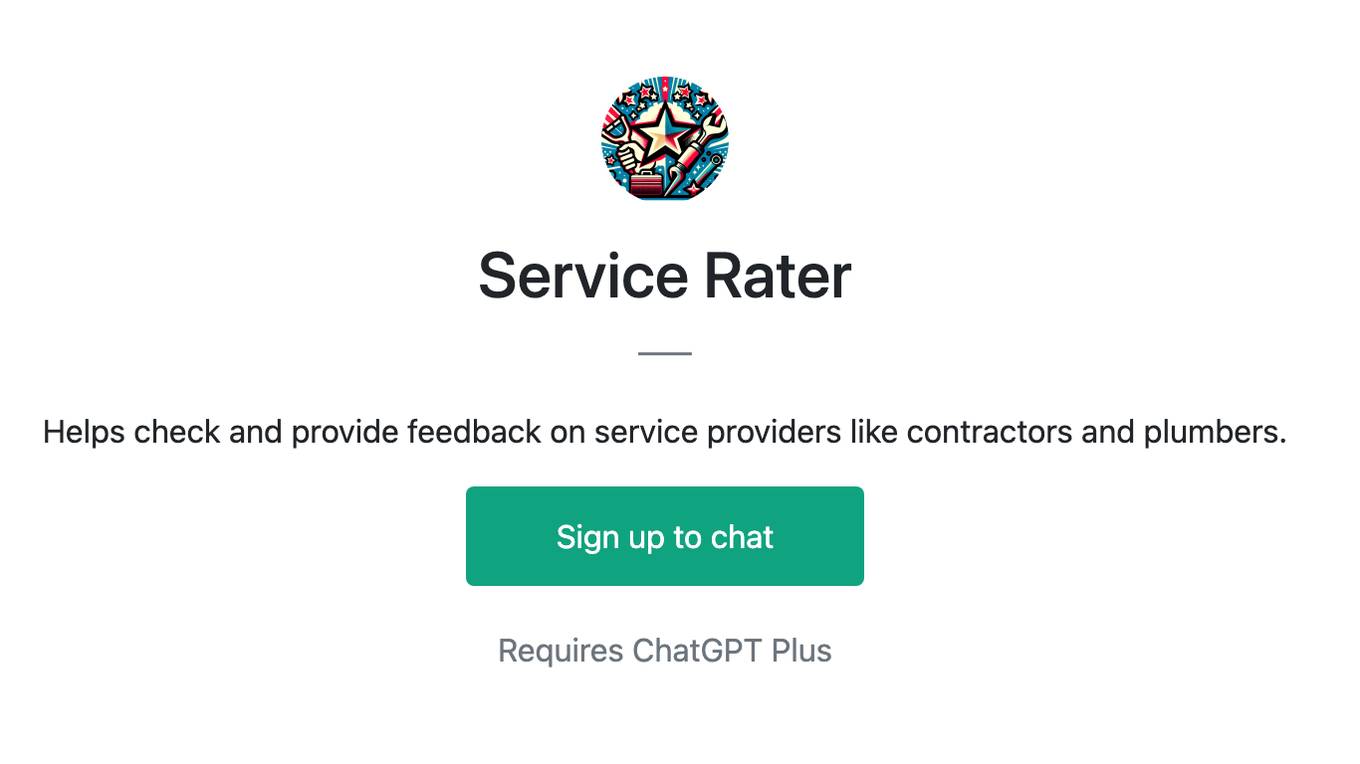
Service Rater
Helps check and provide feedback on service providers like contractors and plumbers.

Are You Weather Dependent or Not?
A mental health self-check tool assessing weather dependency. Powered by WeatherMind
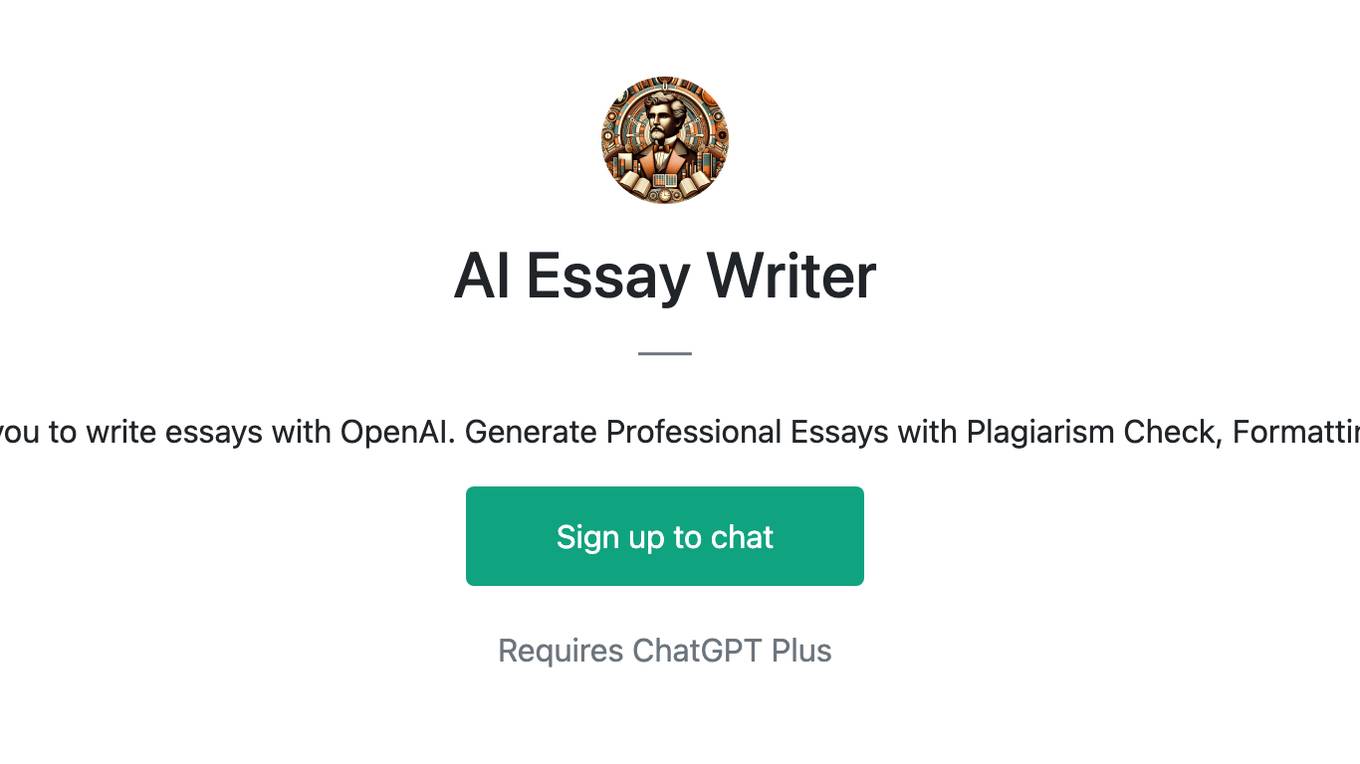
AI Essay Writer
ChatGPT Essay Writer helps you to write essays with OpenAI. Generate Professional Essays with Plagiarism Check, Formatting, Cost Estimation & More.

